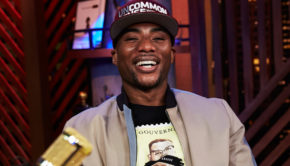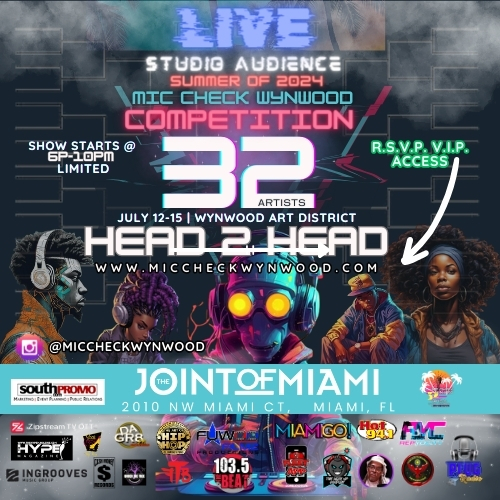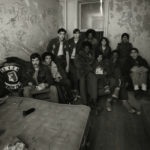The Cultivation of a Culture by KB Tindal
“Hip Hop has pretty much informed all of my decisions in life from a kid ever since I could remember.” Shan Nicholson, Director of Rubble Kings-
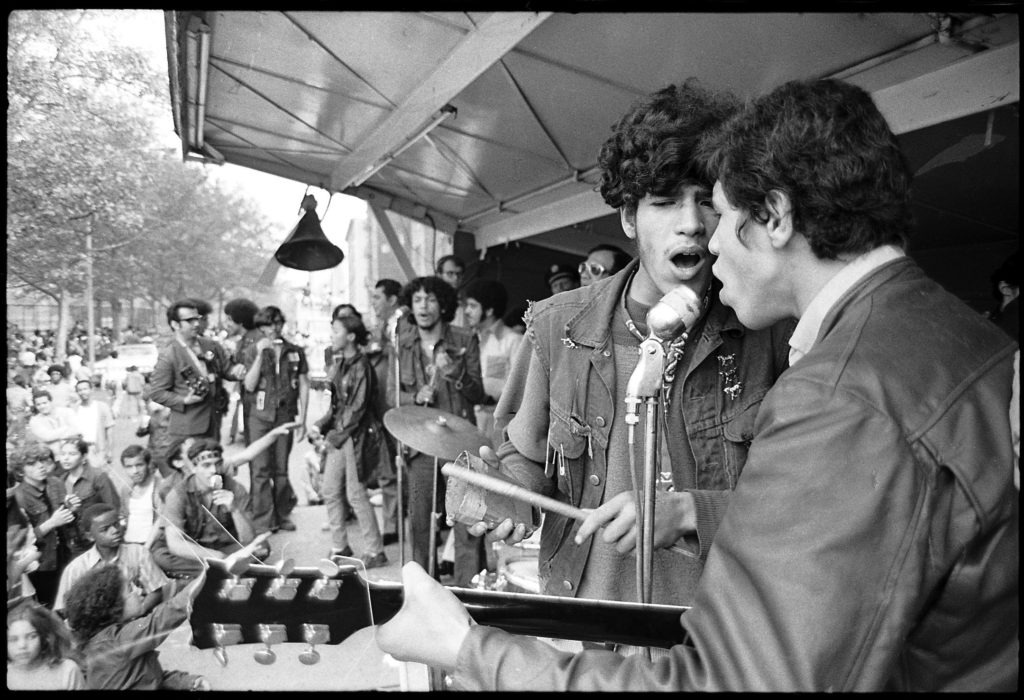
Circa 1978
I’m 10 years old and completely absorbed by a jam in the park which was called “The Circle” from my 16th-floor apartment window in the Castle Hill Projects located at 530 Olmstead Avenue in The Bronx. Little did I know how this day would not only affect me but that it would forever dictate the direction of my life. I couldn’t exactly tell you who was on the wheels of steels at the time providing the riveting tunes but what I can tell you is that the sights and sounds of a new culture that was being bred out of pain, hardship, survival, strength, family, homelessness, corruption, crime, friends and enemies alike, which comprised the dire straits that The South Bronx at the time, was a culture that embodied everything and anything that I’ve always wanted to be a part of good, bad or indifferent.
Before we get to the culture and its existence we have to examine why and under what circumstances it was birthed. Most people think it was as simple as Kool Herc hauling out his DJ equipment from 1520 Sedgewick Avenue and throwing a party. That’s partly true but it’s a lot deeper than that. For this we turn to Hip Hop culture aficionado and filmmaker, Shan Nicholson who stumbled upon a Bronx gang, The Ghetto Brothers and their album “Power Fuerza.” The Ghetto Brothers were one of several gangs in the 1970’s but they were musically orientated on top of being respected on the volatile streets of The South Bronx. Their leaders “Yellow” Benji Melendez, Charlie “Karate Charlie” Suarez and Cornell “Back Benji” Benjamin always focused their energy towards addressing the system that had plagued their environment into the state of emergency that it was in.
We all know Hollywood delved into the NY gang culture with the cult classic film The Warriors which debuted in theaters in 1979 which was the same year Saturday Night Fever and Star Wars debuted. We’ve seen elements of the movie used in rap songs and visuals throughout the years from various artists including Puff Daddy himself. What a lot of the individuals who live a part of this culture and what it represents today may not know is that The Warriors was loosely based on the true story of the most powerful scene in The Warriors film where Roger Hill who played Cyrus brings 9 delegates from every gang in New York to a meeting of the minds on how to overthrow the police and political officials of the city and the phrase “Can You Dig It” came out of that famed scene in the film and it is still a phrase that is widely used whenever it’s appropriate in American culture to this day.
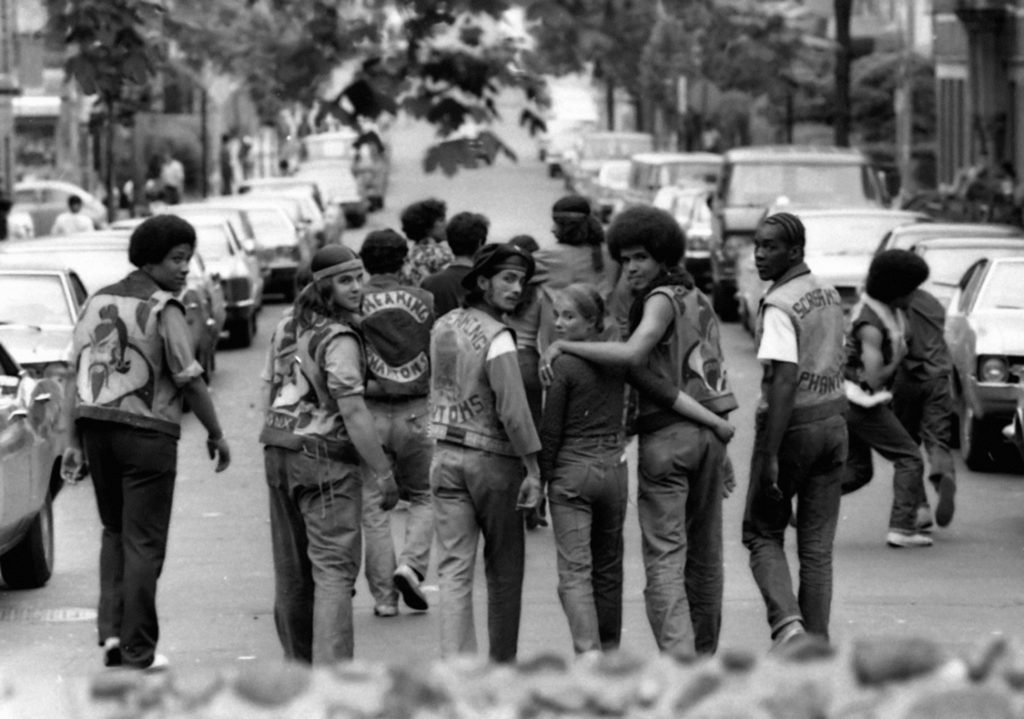
Shan Nicholson went on to direct, produce and edit one of the best documentaries in Rubble Kings that American urban culture or any culture for that matter, has seen to date. The Kings that were born out of the rubble of The Bronx all have different tales from the 70’s and this is probably the most significant one.
Black Benji was a peacemaker and a youth drug counselor whose life was riddled with drug abuse until he met and became a part of The Ghetto Brothers. He continuously tried to save the kids on the streets of the Bronx rather than kill them off as the corrupt cops of the era would more than likely have chosen to do. His death, due to him reaching out to a rival gang for peace was to spawn an uprising among the gangs which if followed through on could have surely left the streets of New York bloodier than any other massacre from violence, drugs or police corruption from that time period could have ever hoped to. What happened instead was a tactical move that brought peace, unity, love and having fun, as quoted by Afrika Bambatta, the founder of the Universal Zulu Nation and a former gang leader of the Black Spades. Knowledge and understanding of ones self along with music changed the face of the universe and continues to do so to this day. If it weren’t for several forces joining together to create a culture that thrives today, instead of destroying a city that was already holding on by a thread there is no telling where we would be today, not only as the city of New York but as a people from whom many of our lives were saved by Hip Hop.
This is not a complete story about Hip Hop but rather the element of truth that gave birth to the culture. What follows is an account from years of preparation and digging in record and video crates alike to present an accurate depiction of how and why Hip Hop is what it is today and why Rubble Kings was made. It’s also a declaration of why Hip Hop is hands down the single most prevalent music genre across the board that not only affects lives but changes them, forever.
Shan, please speak about your history as far as NYC and the gang culture of that era and why you decided to make this film.
I grew up in Long Island City, Queens. Not very far from the 59th St. Bridge and Queensbridge projects. I grew up in the late 70s early 80s. I was kind of in the thick of it in the 80s and 90s. I was the generation right after the whole gang era and I remember some of my older cousins and older brothers who are ex-gang members, so I was never really involved in that when I was coming up but that was kind of my first introduction to gangs. We grew up in more of the crew era but there were still gangs around but it just wasn’t the same way that it was in the 70s. It was more like block crews and things like that and most of the stuff I discovered from record digging. I’m a DJ and a record producer and just by doing that I discovered the Ghetto Brothers album “Power Fuerza” and that prompted me to do a little bit more research on their story. The Ghetto Brothers were a gang but they were also this incredible Latin folk band and it was one of these really rare records of that era that I was so fascinated by because Black and Latino kids were embracing biker culture and every five years there was a twist, like a changing of the guard and I was really tripping over the fact that these kids were all about rock ‘n’ roll and the Hells Angels and that’s really kind of like what struck me at first. Then when I started doing a little bit more research the story of these kids and the traditions and the conditions about how these gangs came about, that’s what’s really drew me in. I would say that the story was actually kind of following me. When a project comes along, if you’re an artist or musician or director, the universe kind of inspires for it to happen and that’s what happened with Rubble Kings. I’d be at a party and somebody would be talking about the Ghetto Brothers records and I’d be like, “what do you know about that?” Then another person would talk about the Savage Skulls so it was one of those situations where the universe kind of inspired me to do it.
What were some of the events that allowed Hollywood to catch on to the project when they did the movie The Warriors and how did that influence you with filmmaking or did it influence you at all??
Well, every kid in my era saw The Warriors. It’s sort of like Goodfellas or Scarface, it’s like Hip Hop folklore or like an educational book. These guys were way more territorial and way more deadly so The Warriors was really just like a Hollywood version of what happened. With that said it did paint a picture of NY that was very real. New York was very scary and the trains were all fucked up and so it did capture an era for sure.
How did you come across the original footage and photos of the gang members that you used in the Rubble Kings documentary?
At first, the story about the Ghetto Brothers and Charlie and these other guys struck me because their characters were so strong and this is before I even met them. This was just off of the research and reading up on them I did. I was like, wow, this would be an amazing flick. I didn’t even see it as a documentary. I saw it as a feature film but the more I started doing research on these guys and again I come from a DJ background so I’m used to going in the crates for all the gems, so I started digging for old footage and during this process I found the footage of the peace treaty and that just blew my mind and I said to myself, if this is real then I have to document it as a documentary. When I found the footage all these guys were there so that also to put a face to the people that were actually there and that put things in the works.
What is the biggest difference that you see from gang culture back then in New York as opposed to gang culture now?
It seems like the gangs now are all about money and drugs wear as back then it was more about protection of the neighborhood and sort of pride in the neighborhood and a lot of times these neighborhoods were so lawless that the gangs actually protected the neighborhood. It wasn’t that they only protected themselves but they also protected the citizens, so if a so if a junkie was on the block and they robbed somebody’s pocketbook they wouldn’t go to the cops if there was a dispute so the gangs would handle this stuff. That’s why think it was so easy to dominate these gangs into such a positive energy because they were already thinking about the community, thinking about their mothers and brothers and sisters because everybody was part of the gang. If you were on The Javelin block your art was shown in your colors. I don’t think that that kind of unity and pride is there today
You also have to understand that these guys were going off of the Black Panther’s black and brown power movement that was prevalent in the 60s and the 70s. I don’t know what’s galvanizing to the gangs of today but I think it’s mostly money driven and not so much about pride but then again I’m not expert on today’s gangs but that’s what it seems like to me.
You were also involved with the music for the documentary along with Torbitt so what was your experience with transitioning from speaking about the gang’s culture to include the involvement of Hip Hop culture in general?
Well that all comes from my knowledge of the birth of Hip Hop and before I even discovered the Ghetto Brothers the connection between the gang culture and hip hop culture is there because no one solidifies that connection more than Afrika Bambatta because he was also very instrumental in changing the mentality and the minds of the gang leaders and he wasn’t the only one. Not a lot of people will go on record and say this but he will be the first one to tell you that he was one of many gang leaders who decided to change the attitude especially in the Black Spades. There were others like DJ Bam Bam and other Black Spades leaders that were just as instrumental but he kind of gets all the credit and rightfully so because he galvanized the trail and created the Zulu Nation which was a huge change because when I was a kid that’s all we heard of was the Zulu Nation. They had chapters all across the city and they stood for positivity but you didn’t want to cross these guys either because they came from a gang mentality.
So with the origins of hip hop and every element whether it was DJing, Emceeing, Graffiti or Dancing (B-Boys or B-Girls) you got to think that the competitiveness from the gang mentality thinking that my neighborhood is better than your neighborhood created a competition and how that turned into creative competition in Hip Hop. If you think about any other culture or any other art form you don’t see bluegrass musicians competing saying, my crew is better than your crew, it just doesn’t exist. So the whole culture is built off of competition and you have to think that that’s part of the gang mentally that infused them into this new form of competition.
With that being said where do you think the culture would be if it weren’t for guys like Bambatta or would there even be a culture at all?
I don’t think it would exist. I think it was one of those things where people will always have a million theories about Hip Hop and how it was created and I just don’t think it would exist and from my experience in talking to Hip Hop pioneers one on one, it was just one of those turn of events where all of these things were happening at the same time that led up to Hip Hop and the creation of it. It wasn’t just kids writing on the trains and it wasn’t just DJs in the park. It wasn’t just kids with dance moves. It was all of these things that were galvanizing and happening at the same time that created this movement. People will argue that Graffiti is not a part of Hip Hop which is also true because Graffiti predates Hip Hop in a lot of ways but it did get put into this package so that the masses understood it but there’s a lot of variables that’s hard to understand and hard to pinpoint. It’s easy to say that Herc was the only person that created this thing and had this master plan but if you talk to Kool Herc he’ll be the first to tell you that he didn’t know what he was doing, that they were just having fun and figuring it out. I don’t think anybody had the master plan. I think it was just one of those things where it naturally just kind of grew into this beautiful thing that we know today.
How did Torbit aka Little Shalimar who’s produced for numerous people including The Jewels last two projects among come to score the documentary?
Well, Torbit aka Little Shalimar is an old friend of mine and we kind of came up together in the music scene and we came about by accident because I was looking, out of necessity. I didn’t have a budget for this film and the major costs that were associated with clearances were with music. Just to give you an example each song that’s normally cleared on a documentary like this goes for about 10 to 15 grand and I have a movie that had almost 24-25 songs in it so if you can do the math we’ talking about a huge sum of money just to clear all this music.
Torbit had just got off of a film that he scored from the same time period and he played me some of these cues for the film and I started saying, “This would be good for this scene and this would be good for that scene,” so a spark went off from the beginning and we were in the studio at the time where he basically could sit there and play drums and play the bass and play the keyboards all day just like it was the 70’s. He just amazed me. I gave him a film with 25 songs and he recreated all of this music to a T. It sounds totally period perfect.
What do you love the most about the hip hop culture then and now and why?
Hip hop is always a double-edged sword for me. I’m in an age group now where we’re looking at Hip Hop, from a distance a little bit because we kind of grew up with it and we see where it started and where it’s going so it’s a bittersweet question for me. Hip Hop has pretty much informed all of my decisions in life from a kid ever since I could remember. In 1982-1983 I was breakdancing in front of my mom’s house and from there I became a Graffiti writer and from there I became a DJ, from there I became a Producer and now I’m a filmmaker. so Hip Hop has been in my DNA since I was a five-year-old but what it’s become from where it was is pretty sad and it’s a little bit disappointing but Hip Hop is always going to evolve and the message for me was all about creativity. It was all about pushing the boundaries. It was all about dedication. It was all about constant change in stock and attitude and today when you look at the artists that are being played on the radio it’s just about money and materialism. It’s about disrespecting our women. It’s about disrespecting the culture itself and I don’t want to be like one of those “well you know back in my day,” because there is still hope. I’m hoping it gets to the point where materialism gets a little played out because it’s the same old story that’s been said a million times.
My main motivation for making Rubble Kings was to show the person that might be into Hip Hop right now and knows something about it like a kid in Ohio who grew up with nothing but Lil Wayne and not knocking Wayne, but he just has kind of a narrow point of view of what Hip Hop is, but if that kid listens to him and he connects with him then it’s like, bro it’s not just all about that. There’s another side to the coin. I am opening up the blinders on that a little bit to bring little bit more of the world in and if I can do that then my job is done.
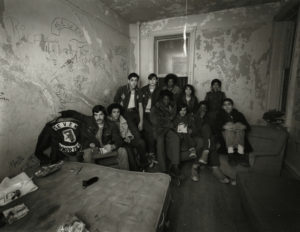
Rubble Kings can now be seen on iTunes, VOD and Netflix.
By KB Tindal
Tweet


